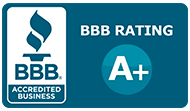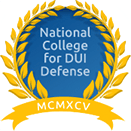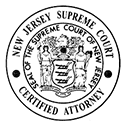First Degree & Second Degree Vehicular Homicide Defense Lawyers
The most serious offense an individual can face for recklessly operating a motor vehicle is death by auto. This charge is also referred to as vehicular homicide. The greatest number of death by vehicular homicide cases arise in Middlesex County as the result of fatal automobile accidents that are DWI related. If you or a loved one was charged with a first degree or second degree crime under N.J.S.A. 2C:11-5 (“Death by vehicular homicide”) in New Brunswick, Edison, Old Bridge, Monroe, Woodbridge or another area municipality, our lawyers are equipped to thoroughly defend you. The firm of The Law Offices of Jonathan F. Marshall possesses the largest criminal defense team in the region with several attorneys who are former prosecutors, even from the Middlesex County Prosecutor’s Office. We have over 100 years of combined experience to assist you in achieving the very best outcome of your offense. Call our office in New Brunswick anytime 24/7 for a free consultation at 732-246-7126.
Middlesex County Death by Auto Charge Under N.J.S.A. 2C:11-5
In New Jersey, “death by auto or vessel” charges are enumerated in N.J.S.A. 2C:11-5 which provides:
§ 2C:11-5. Death by auto or vessel
a. Criminal homicide constitutes vehicular homicide when it is caused by driving a vehicle or vessel recklessly.
Proof that the defendant fell asleep while driving or was driving after having been without sleep for a period in excess of 24 consecutive hours may give rise to an inference that the defendant was driving recklessly. Proof that the defendant was driving while intoxicated in violation of R.S. 39:4-50 or was operating a vessel under the influence of alcohol or drugs in violation of section 3 of P.L. 1952, c. 157 shall give rise to an inference that the defendant was driving recklessly. Nothing in this section shall be construed to in any way limit the conduct or conditions that may be found to constitute driving a vehicle or vessel recklessly.
b. Except as provided in paragraph (3) of this subsection, vehicular homicide is a crime of the second degree.
(1) If the defendant was operating the auto or vessel while under the influence of any intoxicating liquor, narcotic, hallucinogenic or habit-producing drug, or with a blood alcohol concentration at or above the prohibited level as prescribed in R.S. 39:4-50, or if the defendant was operating the auto or vessel while his driver’s license or reciprocity privilege was suspended or revoked for any violation of R.S. 39:4-50, section 2 of P.L. 1981, c. 512, by the Director of the Division of Motor Vehicles pursuant to P.L. 1982, c. 85, or by the court for a violation of R.S. 39:4-96, the defendant shall be sentenced to a term of imprisonment by the court. The term of imprisonment shall include the imposition of a minimum term. The minimum term shall be fixed at, or between, one-third and one-half of the sentence imposed by the court or three years, whichever is greater, during which the defendant shall be ineligible for parole.
(2) The court shall not impose a mandatory sentence pursuant to paragraph (1) of this subsection unless the grounds therefore have been established at a hearing. At the hearing, which may occur at the time of sentencing, the prosecutor shall establish by a preponderance of the evidence that the defendant was operating the auto or vessel while under the influence of any intoxicating liquor, narcotic, hallucinogenic or habit-producing drug, or with a blood alcohol concentration at or above the level prescribed in R.S. 39:4-50 or that the defendant was operating the auto or vessel while his driver’s license or reciprocity privilege was suspended or revoked for any violation of R.S. 39:4-50, section 2 of P.L. 1981, c. 512, by the Director of the Division of Motor Vehicles pursuant to P.L. 1982, c. 85, or by the court for a violation of R.S. 39:4-96. In making its findings, the court shall take judicial notice of any evidence, testimony or information adduced at the trial, plea hearing, or other court proceedings and shall also consider the presentence report and any other relevant information.
(3) Vehicular homicide is a crime of the first degree if the defendant was operating the auto or vessel while in violation of R.S. 39:4-50 or section 2 of P.L. 1981, c. 512 while:
(a) on any school property used for school purposes which is owned by or leased to any elementary or secondary school or school board, or within 1,000 feet of such school property;
(b) driving through a school crossing as defined in R.S. 39:1-1 if the municipality, by ordinance or resolution, has designated the school crossing as such; or
(c) driving through a school crossing as defined in R.S. 39:1-1 knowing that juveniles are present if the municipality has not designated the school crossing as such by ordinance or resolution.
A map or true copy of a map depicting the location and boundaries of the area on or within 1,000 feet of any property used for school purposes which is owned by or leased to any elementary or secondary school or school board produced pursuant to section 1 of P.L. 1987, c. 101 (2C:35-7) may be used in a prosecution under subparagraph (a) of this paragraph.
It shall be no defense to a prosecution for a violation of subparagraph (a) or (b) of this paragraph that the defendant was unaware that the prohibited conduct took place while on or within 1,000 feet of any school property or while driving through a school crossing. Nor shall it be a defense to a prosecution under subparagraph (a) or (b) of this paragraph that no juveniles were present on the school property or crossing zone at the time of the offense or that the school was not in session.
(4) If the defendant was operating the auto or vessel in violation of R.S. 39:4-50 or section 2 of P.L. 1981, c. 512, the defendant’s license to operate a motor vehicle shall be suspended for a period of between five years and life, which period shall commence upon completion of any prison sentence imposed upon that person.
c. For good cause shown, the court may, in accepting a plea of guilty under this section, order that such plea not be evidential in any civil proceeding.
d. Nothing herein shall be deemed to preclude, if the evidence so warrants, an indictment and conviction for aggravated manslaughter under the provisions of subsection a. of N.J.S.A. 2C:11-4.
As used in this section, “auto or vessel” means all means of conveyance propelled otherwise than by muscular power.
e. Any person who violates paragraph (3) of subsection b. of this section shall forfeit the auto or vessel used in the commission of the offense, unless the defendant can establish at a hearing, which may occur at the time of sentencing, by a preponderance of the evidence that such forfeiture would constitute a serious hardship to the family of the defendant that outweighs the need to deter such conduct by the defendant and others. In making its findings, the court shall take judicial notice of any evidence, testimony or information adduced at the trial, plea hearing, or other court proceedings and shall also consider the presentence report and any other relevant information. Forfeiture pursuant to this subsection shall be in addition to, and not in lieu of, civil forfeiture pursuant to chapter 64 of this title.
Elements of Death by Auto in New Jersey
The key element of death by auto is recklessness on the part of the accused in the operation of his or her motor vehicle. The more specific elements which must be proven by the prosecutor, beyond reasonable doubt, are that the defendant: (1) was the operator of a automobile or vessel; (2) her or she was reckless; and (3) his or her conduct caused the death. Reckless is often established through proof that the accused was intoxicated or under influence of drugs at the time of the collision.
Grading of Offense. Death by vehicular homicide is typically a second degree crime. However, the violation is enhanced to a first degree crime if the offense stems from driving while intoxicated in school zone.
Penalties. First degree death by auto results in 10-20 years in prison and a fine of up to $200,000. Second degree vehicular homicide carries 5-10 years of incarceration and a maximum fine of $150,000. The No Early Release Act (“NERA”) is triggered at the time of sentencing for either degree of death by vehicular homicide. NERA requires that an individual serve at least 85% of their jail sentence before they can be considered for parole.
New Brunswick Death by Vehicular Homicide Attorney
Since all death by auto cases involve an indictable crime of either the first degree or second degree, the only place they can be adjudicated is at the Middlesex County Superior in New Brunswick NJ. Anyone charged with vehicular homicide should find the most experienced and skilled attorney to handle a case in this venue. The lawyers at The Law Offices of Jonathan F. Marshall have this level of qualification and even include Jason Seidman, Esq., a former supervisor in the county prosecutor’s office. To speak to Jason or another lawyer on our staff immediately, call our office at 732-246-7126.













